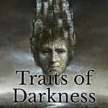Bonus Content: 4 Reasons to Be Afraid of New Amazon Rules for Authors
Read Now

Do you hate cheaters?
Most of us do. And rightly so. When there are fair, transparent rules meant to level the playing field, it is precisely those rules that can create a framework for people to flourish under. Yet, just like in the popular board game Monopoly, many of us have encountered people who might try to bend the rules in an attempt to gain some perceived advantage. Friendships can be ruined, trust can be broken in those moments. It is easy to feel as if something tangible has been taken from you, when someone uses unfair advantages to acquire a temporary advantage. Even if you beat the cheater, the damage has already been done: you know they don’t always abide by the rules.
Many independent authors feel that “book stuffers,” are cheaters.* They see that Amazon offers a relatively fixed amount of money for authors as part of the Kindle Unlimited program, and they feel that anyone who may use unfair advantages to earn more page reads is actually depriving them of that money. There may be some logic to this. There is a pool of money. If one person gets some of that money, someone else does not. However, nothing in life is so simple, especially when it comes to the complex world of publishing. Allowing Amazon to censor the interior and content of books is an extremely dangerous precedent. More harm has come from surrendering more power to Amazon than any perceived good that might come from policing so-called “book stuffing.”
To begin, on June 1, 2018, Amazon responded to an increasingly fervent array of calls from independent authors by formally establishing new rules on bonus content. These rules are widely acknowledged to be targeted towards “book stuffing.” There are three primary components to the new controversial bonus content rule:
- No more than 10% of an e-book should be “bonus content;”
- No “disruptive,” links; and, finally,
- No promises of gifts or rewards
Many people have called these rules too lax. An inc.com article recently asked that Kindle Unlimited income be CAPPED AT THE RETAIL PRICE OF THE BOOK.
This essay is meant to explain why there should be no such rules at all.
Staying on the point above, please note the liberal use of quotation marks. They were not placed there impulsively or inadvertently. The terms and rules at issue here are often extremely vague. After all of the controversy that fomented even mighty Amazon to change, we still don’t really know what some of these terms mean. Different people define them different ways. Usually the definitions hinge on how people perceive them to benefit themselves. Most authors I know, unfortunately, agree passionately with the idea that bonus content is bad. But, what is bonus content? Ask that question sometime online and see how many variegated answers you get.
We simply do not have a universal definition for what constitutes book stuffing. Is it an extra chapter or two? Is it a teaser? Is a prologue an example of book stuffing? An epilogue? Beyond the obvious and most relevant terms, the new rules try to satisfy the vaguest of vagaries from a group who, if we’re honest with ourselves as authors, aren’t always paragons of consistency. What is “disruptive?” What is a link? What is a gift and what is a promise?
Remember the context. It may seem amusing to ask a crowd of adults what the word promise means. But the query arises under a controversial RULE set by a major company that controls many of our brands and livelihoods. One reason this topic can be so emotional is because people feel invested in the outcomes. We’re no longer talking Monopoly money. Independent authors often do not get compensated very well, and a few bucks can be a major thing. Authors use the proceeds from their book sales and page reads for real-life necessities, such as feeding their children.
Moving on, Amazon has already banned a number of accounts under the new bonus content rules. People that, it turned out, were and are innocent. Many of those authors are no longer able to use the biggest BOOK RETAILER on the planet. Why? Because of those rules. If you didn’t think they were vague, think again.
I myself have been censored by Amazon due to these rules. Before moving on, it might be worth noting I have never been accused of book stuffing, and hope I never will be. Nonetheless, I have been censored into not adding ANY bonus content to my works, because my competitors in the independent book publishing business might notice and take offense. The mysterious algorithms in Bezosland might flag me. Yes, algorithms are the ones doing most of the policing. If nothing else in this essay scares you, the fact that humans are barely involved in this process should.
Amazon forces users to accept draconian (and I say illegal) arbitration clauses that essentially obviates anyone’s ability to sue. So, if you are banned under the new bonus content rules, you have no real recourse. You can file to have your case heard by an arbitrator paid and hand-selected by the company you claim harmed you. If you have the time, resources, knowledge, and money, you might even be able to waste it getting in front of that arbitrator.
So, the first problem is, the rules are vague and inconsistently applied, with no legitimate recourse.
Moving on, I often hear the word theft bandied about in conversations on this topic. Numerous laws exist that prohibit theft. So, if there are legitimate complaints of theft, anyone can call their local law enforcement agencies and attempt to file a complaint or refer cases for criminal prosecution. On a smaller scale, this admittedly might be somewhat impractical, but if the claims of millions being “stolen,” have any basis in reality and can be substantiated, there are young, hungry federal prosecutors who would love to take on such a case. I would strongly urge everyone NOT to call the police, because America already has an imprisonment problem, and wasting law enforcement time with petty theft complaints when they could be trying to find legitimate bad guys is wrong. Not to mention if people did start getting arrested (and some of them would eventually get acquitted), they would be forced into surrendering their lives just to get bail, and then probably would be forced into an overburdened prison system. But, that is all a separate issue. There are already rules and laws which proscribe stealing. If you think someone stole from you, report it. Or shut up.
I urge anyone who has ever been targeted for bonus content to investigate the potential of suing those who call this theft. It is unfounded and libelous to brand someone as a thief without evidence or due process. It is not only libelous, it is also dangerous.
Which brings me to the next point.
Third, in an era where people are hyper-sensitive to the very real threat of censorship from major tech companies, with parties on all ends of the political spectrum having accounts banned, often improperly, independent authors are clamoring to give one of those massive tech companies MORE power. These bonus content rules set a clear precedent that allows Amazon and its algorithms to monitor the INTERIOR content of books. Amazon, a distributor, a retailer, can now determine what books should be sold to the public. At first blush, many people are happy about this. Amazon is monitoring their books to even the playing field and catch the supposed thieves. Even if we accept that as true, one must acknowledge the reality that oftentimes, when a rule begins with good intentions, those good intentions are subverted and corrupted.
Almost all of us unequivocally abhor hate speech. I don’t like hate speech. Perhaps Amazon should now extend their rules on bonus content. We need to level the playing field. Amazon’s algorithms really need to help protect us from the oppressors who are stealing from us. Yet, who are the oppressors? Ask around. I bet you’ll get different answers. One political party has as a fundamental part of its platform that taxation is theft. Another political party has as a fundamental part of its platform that corporations are robber barons. So, certainly if we let Amazon determine what is hate speech, they’ll be fair and unbiased and get things right 100 percent of the time, right?
Wrong. WRONG. Wrong in all fucking capital letters wrong.
Censorship is never a good idea. Allowing Amazon the ability to censor the contents of a book might be backed by good intentions, and I can sympathize. I have used Kindle Select, and been compensated a very small amount for page reads. I am an independent author at the moment, too. And it is precisely because I am an author that I oppose bonus content rules. Not because I don’t understand the premise and good intentions. The people calling for these rules are not bad people. I’m not impugning them directly. I am, however, casting aspersions on the precedent. Once censorship begins, it is nearly impossible to ever fully eradicate.
Switching gears, allow me to finish this with a further point on theft. It is not theft. Yet, many people insist on calling it that. It may FEEL like theft, and I can empathize. I can. Nonetheless, let’s examine that point further.
If an author adds 33 percent (as opposed to ten percent) of bonus content to a book, perhaps as legitimately useless filler material generated by computer programs, and generates 50 extra page reads from that content, what harm did you or I suffer? To even begin to make a case that another author harmed you, you would have to examine genre, comparable titles, and a host of other related areas. If an author wrote a bi-racial trans erotica set in Victorian England, even if they DID “stuff,” their book with bonus content, that would not harm me. Because I do not write bi-racial trans erotica. There is no overlap between the genres that the accused book stuffer writes in and the ones I write in. Those page reads would have ended up with another similar author. Not me. So, I wasn’t harmed.
Beyond that, one must admit we’re talking fractions of a penny when we discuss Kindle Unlimited page reads. FRACTIONS OF A PENNY. 1,000 page reads translates to roughly $4. Yes, a number of authors, especially the coveted All Stars, earn a lot of money from their page reads. For many lesser-known authors, page reads constitute up to half of their author income. I can sympathize. I understand. Nonetheless, at its root, the theoretical problem of bonus content revolves around less than a penny.
For those that did suffer legitimate harms, go to the police. Don’t give the power to Amazon.
Because Amazon has already abused that power.
Please visit authorstanleygray.blogspot.com for more great stories.
[*Amazon’s Kindle Unlimited program allows subscribers to download and peruse unlimited eligible books and content in a curation service many have likened to a sort of Netflix for books.]
About the Creator
Stanley Gray
Stanley Gray is an award-winning writer who creates exciting stories with flawed characters. Traits of Darkness, the first in its series, is available on Amazon. He lives in beautiful Oregon, and loves spending time with his cat, Calypso.






Comments
There are no comments for this story
Be the first to respond and start the conversation.